London's had Mayor Boris: will Midlands meet Mayor Max?
- Published
- comments
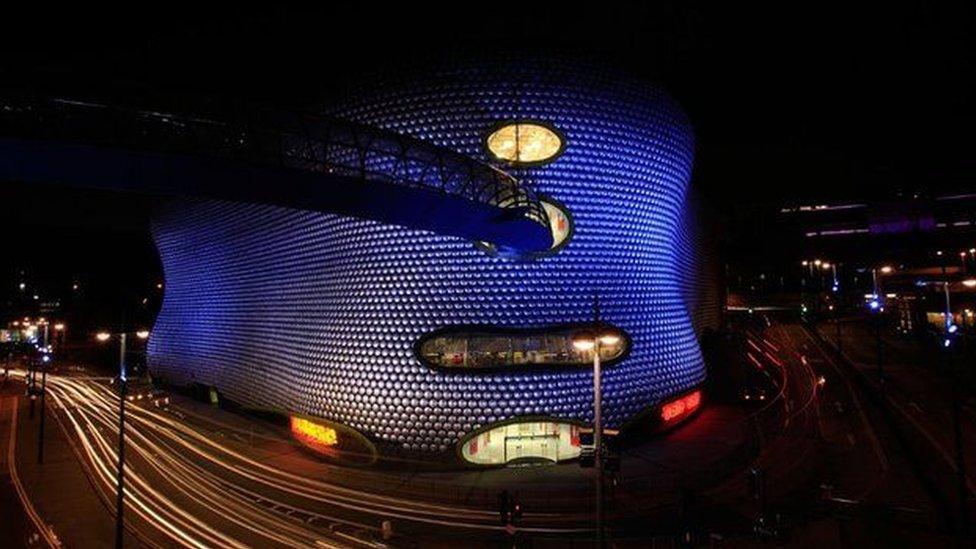
Does the West Midlands need an elected mayor? Is it just more bureaucracy? Or a chance for more financial powers and a return to municipalism?
"To qualify for the maximum level of devolution we think an elected mayor would be appropriate: Devo Max! If I can put it that way," quipped the Prime Minister when I interviewed him on the eve of his party conference.
It was also clear from our conversation that the converse was equally true.
If a region in which major cities like Birmingham and Coventry have already emphatically rejected the idea does not sign up for one this time, then the devolved political and spending powers on offer from the government would be significantly watered down compared with those conferred on the Northern Powerhouse councils.
So if it happens, maybe we could call him (or her) Mayor "Devo" Max (or Maxine).....
This big difference, he told me, between this mayoral debate and the previous ones is that a handover of such extensive powers from Whitehall has not been on the table until now.
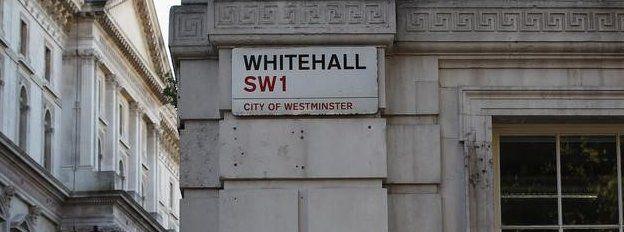
Is devolution a way for the government to devolve political blame?
What's really significant about Mr Cameron's intervention is its timing.
The leaders of the seven big metropolitan authorities which have signed up for a new West Midlands Combined Authority are currently engaged in intensive negotiations with the government over what exact shape any 'devo' deal might take.
The councils themselves are about to consider the formalities leading to ratification of the combined authority.
Neighbouring Labour councils Nuneaton and Bedworth and Telford and Wrekin along with Conservative Tamworth also want to join as 'non constituent' or associate members who, significantly, would not fall under the ambit of an elected mayor.
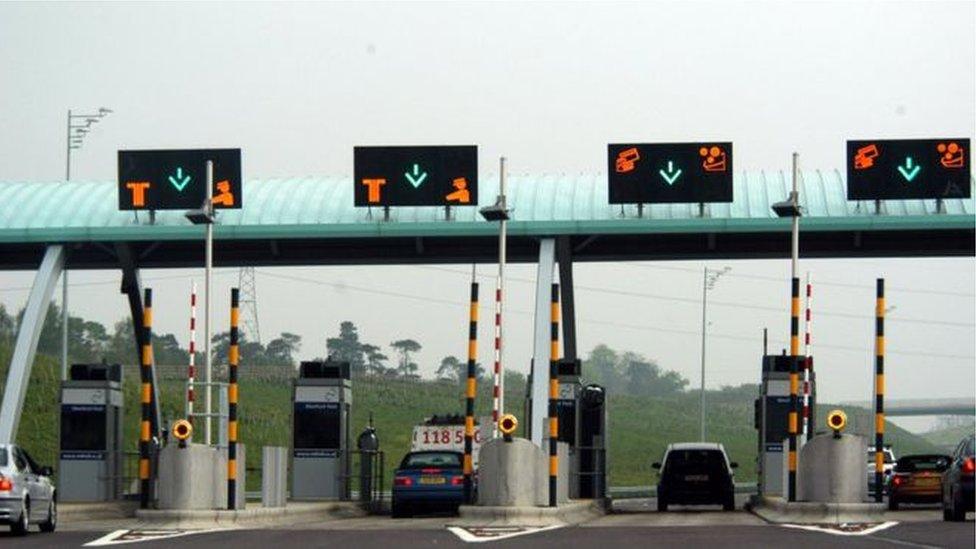
M6 Toll owner Midland Expressway Limited says it has not been consulted over any plan to remove the charges.
A recent discussion document submitted to the government by the seven councils and leaked to the BBC has given us our best indication yet of the sorts of powers being considered. The most eye-catching was a proposition to make the M6 Toll motorway free at the point of use, if only for HGVs. That would probably entail a £15m subsidy and conventional wisdom is that it is unlikely to happen.
Opening gambit
It just serves to underline that the document itself was an opening gambit in what will inevitably be a long and complex negotiation. Other less conspicuous recommendations may give a truer indication of what they are really talking about:
A Council Tax precept
Devolved powers over housing, skills, transport, police and crime
Reduced Air Passenger Duty to help Birmingham Airport raise passenger numbers by three million a year.
Conspicuous by its absence from this list, compared at least with that agreed by our friends in the north, is health.
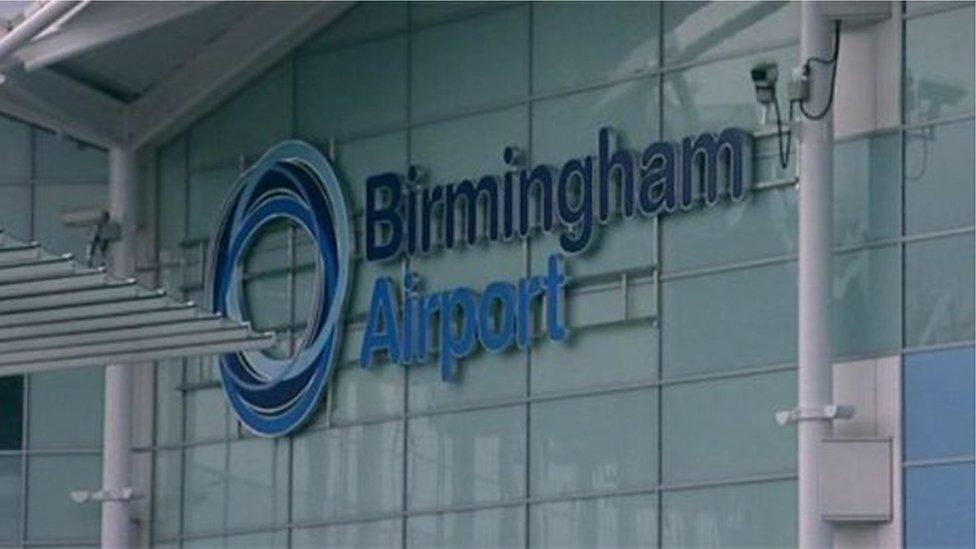
Birmingham Airport lies within Solihull Council's area. The council, also holds the NEC, in its remit and has agreed to work with other West Midland Authority councils.
Interested though local leaders may be in taking responsibility for mental health, I understand that does not extend to most other areas of the health service. The well-documented problems facing some of our major teaching hospitals are so complex and expensive to fix that there is no appetite here to relieve Westminster of its responsibility for the most of the NHS.
Am I the only person who wonders if part of the attraction of devolution from the government's point of view is that it enables them to devolve political blame as well, especially for some of our more accident-prone public services? No doubt those local negotiators will be equally keen not to assemble a collection of poisoned chalices.
Road to Damascus?
Almost a year has passed since Sandwell Council's Labour Leader Darren Cooper proclaimed the "historic agreement" between four Black Country councils and Birmingham to bury their traditional tribal differences and work together towards a combined West Midlands authority.
Subsequently, and after a spirited debate, Coventry opted to join in as well. But not Warwickshire, so the city and the county could find themselves on opposite sides of the divide despite the blandishments of the Coventry and Warwickshire Local Enterprise Partnership who want them to remain on the same side of any many fences as possible.
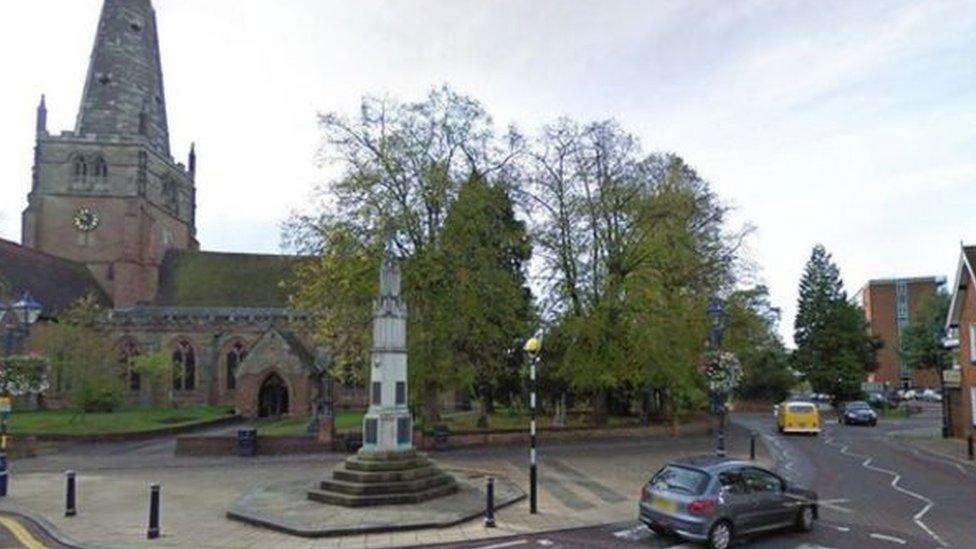
Solihull: A roadblock in the way of devolution? Or the crown jewel of the West Midlands economy?
But by some distance the most reluctant partner in this process was Bob Sleigh, the Conservative leader of Solihull. He reflected the general scepticism both on the council and among the electorate as a whole. Birmingham's Labour leader Sir Albert Bore described Solihull as "a roadblock" in the way of the devolved authority. How, we wondered, could it command any credibility at all if it did not include the council in whose area the Crown Jewels of the local economy, the airport and the NEC, were situated?
In the event, Solihull has turned out to be less of the road block than a road to Damascus.
Not only has it now signed up to work with the others on the project, but Councillor Sleigh has been installed as chairman of the shadow body that could pave the way for it.
It would not be the first time in politics that playing hard to get has paid handsome dividends.
Another possible interpretation is perhaps that Councillor Sleigh may be the only council leader among the seven who does not nurse discreet ambitions to run for elected mayor.
These will be among the issues I will talk to him about on this weekend's Sunday Politics Midlands.
Tie a knot in your handkerchief because this week, for one week only, we are on that the later time of 2.15pm on BBC One Midlands, Sunday 11 October 2015.
You can see Patrick's interview with David Cameron viewing the Sunday Politics Midlands programme of 4 October on the BBC I-Player, until 1 November.